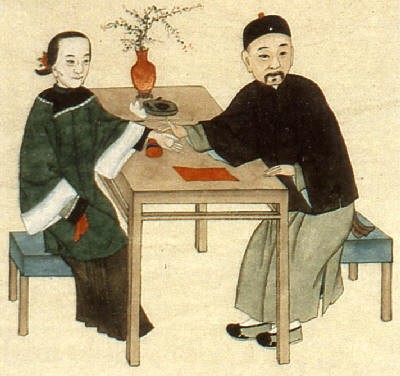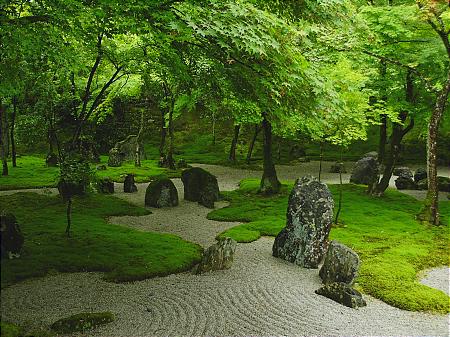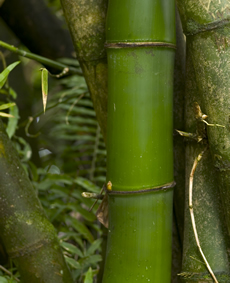FAQs
The following section should help to answer questions that you have concerning Chinese medicine in general or about aspects of the treatment process in particular. If you need further information please contact Edmond.
The following section should help to answer questions that you have concerning Chinese medicine in general or about aspects of the treatment process in particular. If you need further information please contact Edmond.
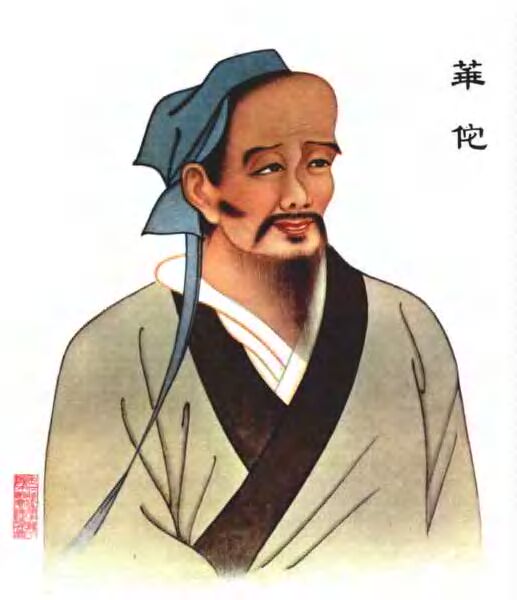



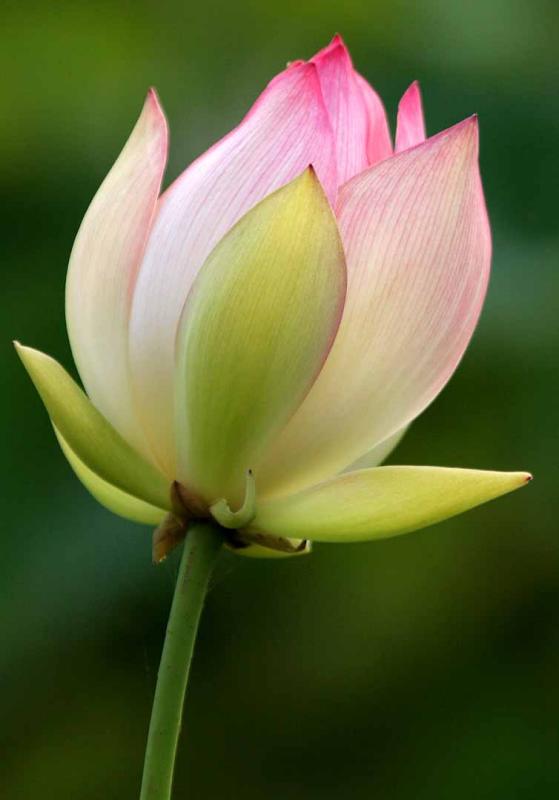
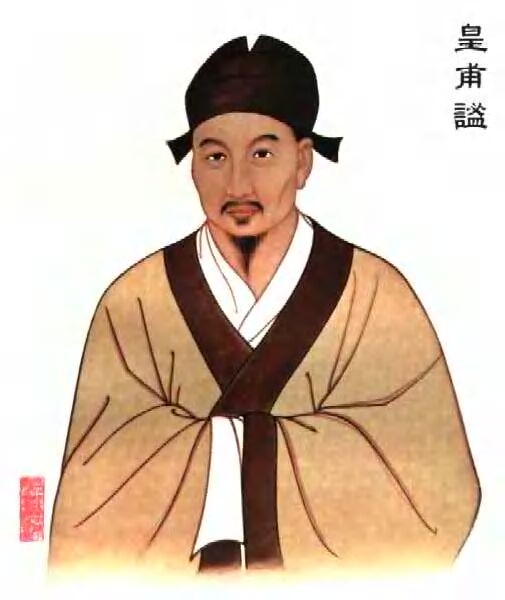
What is Chinese Medicine?
Chinese medicine is the oldest, professional, continually practised, literate medicine in the world. Written literature about this medical system stretches back almost 2,500 years. This system has been influenced by Daoist, Buddhist and Confucian thought and has been formulated by some of the best educated and brightest scholars in Chinese history. It is estimated that there are between 30-40,000 extant books on Chinese medicine written before the turn of the century. Since then, thousands more books and articles in professional journals have been written and published in China, Taiwan, Singapore and Hong Kong. Currently, 25% of the world's population make use of it. One can say that modern Western medicine and traditional Chinese medicine are the two dominant medical systems in the world today.
Chinese medicine is based on the principle that good health depends on achieving optimum functioning of the neurovascular system (jing-luo-sun mai) and the internal organs (zang fu). Clinical strategies are based upon a diagnosis of patterns of signs and symptoms that reflect a disturbance in these key systems. However, the tradition as a whole places great emphasis on lifestyle management in order to prevent disease before it occurs. Chinese medicine recognises that health is more than just the absence of disease and it has a unique capacity to maintain and enhance our capacity for well being and happiness.
Chinese medicine utilises four broad modalities to restore vitality and re-establish balance in the body: acupuncture therapy (which includes moxibustion and cupping in addition to needle therapy), herbal therapy (including dietary therapy, herbal teas, tinctures, wines, powders, pills and externally applied oils, balms and liniments), massage therapy (traditionally includes bone setting as well as various types of massage such as tuina and anmo) and remedial or preventative health exercises such as qigong or daoyin.
What will happen at my initial consultation?
Your initial consultation will take longer than subsequent sessions as I will need to make a thorough assessment of your general state of health in order to identify your underlying disharmony and give you the most effective treatment. You will be asked about your current symptoms, what treatment you have received, your medical history, diet, digestive system, sleeping patterns and emotional state. I will assess your tongue and pulses and if appropriate make an examination of the affected area. Once this has been completed a diagnosis will be concluded and a treatment program developed together with you.
Do I need to prepare myself for treatment?
Coming for a course of treatment requires your participation to fully benefit. You should be prepared to look at your lifestyle and be ready to make changes, so that your recovery can continue and the benefits of treatment can last longer. Try to avoid alcohol for at least 12 hours before. It is also best not to arrive at the clinic on a full or empty stomach. If you feel really tired, dizzy or faint, it is also advisable not to have acupuncture treatment. It may be necessary to remove certain items of clothing so specific acupuncture points can be accessed. A good idea is to wear loose clothing that can be easily rolled up and moved.
What does treatment involve?
Acupuncture treatment involves the application of very fine needles to precisely located points on your body. The points used are not always close to the part of the body where you experience the problem. For example, although you might suffer from headaches, needles may be inserted in your foot or hand. When a needle is inserted, the sensation is often described as a tingling or dull ache. Needles are retained for around 20 minutes and patients commonly experience a pleasant feeling of relaxation.
If necessary, I will use massage to enhance the therapeutic effect of acupuncture or supplement the needle treatment with other methods such as moxibustion (where a smouldering herb is used to bring heat to a local area), TDP lamp therapy (a smokeless alternative to moxibustion) or cupping (to increase the local circulation, usually in an area of pain or numbness).
Herbal medicine may be prescribed in the form of powders, capsules, tablets or pills to complement the therapeutic action of acupuncture. External liniments, creams and plasters may also be recommended for more superficial problems. In addition, remedial exercises, self-massage, relaxation techniques or dietary advice may be given to help consolidate treatment and accelerate your recovery.
What can I expect to feel after treatment?
Patients sometimes feel light-headed after treatment, especially if it is their first time and it is often advisable to have an early night's sleep to allow the body to fully relax and begin healing. After a course of treatments many patients feel an unexpected range of benefits in addition to alleviation of the problem they initially came with, such as increased confidence, calmness, enjoyment of life, greater energy and vitality, and an increased ability to face stress and deal with the strains of daily living.
How many treatments will I need?
Typically this will depend on the condition being treated, how long the condition has been present, the severity of the condition and the general health of the patient. Acute conditions may be successfully treated after one or two treatments. More chronic conditions are generally subject to a course of treatment, for example, 6 - 12 sessions. A good rule of thumb is that diseases commonly require a month of treatment for each year that the problem has existed. Many chronic conditions have been shown to benefit very well following such course of treatment.
Should my doctor know?
If you are receiving treatment from your doctor then it makes sense to tell him or her about your plans to see a practitioner of Chinese Medicine. Treatment may enable you to reduce or even stop taking some forms of conventional medication, but your doctor should be consulted regarding any change of prescription. I am happy to liaise with your doctor at your request. When practised by a qualified practitioner, Chinese Medicine is completely compatible with, and indeed can greatly enhance the effects of other treatments such as orthodox medicine, osteopathic or chiropractic prescriptions.
Is Chinese Medicine Safe?
Yes. When practised by qualified professional practitioners, acupuncture and Chinese herbal medicine are extremely safe.
Members of the British Acupuncture Council have to follow strict codes of ethics, practice and professional conduct, with stringent standards of hygiene and safety. All needles are sterile and disposable, so they are used once only and then destroyed. These procedures have been approved by the Department of Health and provide protection against the transmission of infectious disease.
Members of the Register of Chinese Herbal Medicine only purchase their herbal medicines from vetted herbal suppliers who have verified the authenticity and purity of their herbs from contamination through highly sophisticated techniques such as thin layer chromatography, high performance liquid chromatography and atomic absorption photometry. Practitioners are also trained to know when certain herbs are contraindicated. This is particularly important to avoid potential herb-drug interactions when the patient is on an orthodox drug treatment regime.
What about Endangered Species?
Endangered plant and animal species are not used and their illegal trade is condemned by the profession.
Chinese medicine is the oldest, professional, continually practised, literate medicine in the world. Written literature about this medical system stretches back almost 2,500 years. This system has been influenced by Daoist, Buddhist and Confucian thought and has been formulated by some of the best educated and brightest scholars in Chinese history. It is estimated that there are between 30-40,000 extant books on Chinese medicine written before the turn of the century. Since then, thousands more books and articles in professional journals have been written and published in China, Taiwan, Singapore and Hong Kong. Currently, 25% of the world's population make use of it. One can say that modern Western medicine and traditional Chinese medicine are the two dominant medical systems in the world today.
Chinese medicine is based on the principle that good health depends on achieving optimum functioning of the neurovascular system (jing-luo-sun mai) and the internal organs (zang fu). Clinical strategies are based upon a diagnosis of patterns of signs and symptoms that reflect a disturbance in these key systems. However, the tradition as a whole places great emphasis on lifestyle management in order to prevent disease before it occurs. Chinese medicine recognises that health is more than just the absence of disease and it has a unique capacity to maintain and enhance our capacity for well being and happiness.
Chinese medicine utilises four broad modalities to restore vitality and re-establish balance in the body: acupuncture therapy (which includes moxibustion and cupping in addition to needle therapy), herbal therapy (including dietary therapy, herbal teas, tinctures, wines, powders, pills and externally applied oils, balms and liniments), massage therapy (traditionally includes bone setting as well as various types of massage such as tuina and anmo) and remedial or preventative health exercises such as qigong or daoyin.
What will happen at my initial consultation?
Your initial consultation will take longer than subsequent sessions as I will need to make a thorough assessment of your general state of health in order to identify your underlying disharmony and give you the most effective treatment. You will be asked about your current symptoms, what treatment you have received, your medical history, diet, digestive system, sleeping patterns and emotional state. I will assess your tongue and pulses and if appropriate make an examination of the affected area. Once this has been completed a diagnosis will be concluded and a treatment program developed together with you.
Do I need to prepare myself for treatment?
Coming for a course of treatment requires your participation to fully benefit. You should be prepared to look at your lifestyle and be ready to make changes, so that your recovery can continue and the benefits of treatment can last longer. Try to avoid alcohol for at least 12 hours before. It is also best not to arrive at the clinic on a full or empty stomach. If you feel really tired, dizzy or faint, it is also advisable not to have acupuncture treatment. It may be necessary to remove certain items of clothing so specific acupuncture points can be accessed. A good idea is to wear loose clothing that can be easily rolled up and moved.
What does treatment involve?
Acupuncture treatment involves the application of very fine needles to precisely located points on your body. The points used are not always close to the part of the body where you experience the problem. For example, although you might suffer from headaches, needles may be inserted in your foot or hand. When a needle is inserted, the sensation is often described as a tingling or dull ache. Needles are retained for around 20 minutes and patients commonly experience a pleasant feeling of relaxation.
If necessary, I will use massage to enhance the therapeutic effect of acupuncture or supplement the needle treatment with other methods such as moxibustion (where a smouldering herb is used to bring heat to a local area), TDP lamp therapy (a smokeless alternative to moxibustion) or cupping (to increase the local circulation, usually in an area of pain or numbness).
Herbal medicine may be prescribed in the form of powders, capsules, tablets or pills to complement the therapeutic action of acupuncture. External liniments, creams and plasters may also be recommended for more superficial problems. In addition, remedial exercises, self-massage, relaxation techniques or dietary advice may be given to help consolidate treatment and accelerate your recovery.
What can I expect to feel after treatment?
Patients sometimes feel light-headed after treatment, especially if it is their first time and it is often advisable to have an early night's sleep to allow the body to fully relax and begin healing. After a course of treatments many patients feel an unexpected range of benefits in addition to alleviation of the problem they initially came with, such as increased confidence, calmness, enjoyment of life, greater energy and vitality, and an increased ability to face stress and deal with the strains of daily living.
How many treatments will I need?
Typically this will depend on the condition being treated, how long the condition has been present, the severity of the condition and the general health of the patient. Acute conditions may be successfully treated after one or two treatments. More chronic conditions are generally subject to a course of treatment, for example, 6 - 12 sessions. A good rule of thumb is that diseases commonly require a month of treatment for each year that the problem has existed. Many chronic conditions have been shown to benefit very well following such course of treatment.
Should my doctor know?
If you are receiving treatment from your doctor then it makes sense to tell him or her about your plans to see a practitioner of Chinese Medicine. Treatment may enable you to reduce or even stop taking some forms of conventional medication, but your doctor should be consulted regarding any change of prescription. I am happy to liaise with your doctor at your request. When practised by a qualified practitioner, Chinese Medicine is completely compatible with, and indeed can greatly enhance the effects of other treatments such as orthodox medicine, osteopathic or chiropractic prescriptions.
Is Chinese Medicine Safe?
Yes. When practised by qualified professional practitioners, acupuncture and Chinese herbal medicine are extremely safe.
Members of the British Acupuncture Council have to follow strict codes of ethics, practice and professional conduct, with stringent standards of hygiene and safety. All needles are sterile and disposable, so they are used once only and then destroyed. These procedures have been approved by the Department of Health and provide protection against the transmission of infectious disease.
Members of the Register of Chinese Herbal Medicine only purchase their herbal medicines from vetted herbal suppliers who have verified the authenticity and purity of their herbs from contamination through highly sophisticated techniques such as thin layer chromatography, high performance liquid chromatography and atomic absorption photometry. Practitioners are also trained to know when certain herbs are contraindicated. This is particularly important to avoid potential herb-drug interactions when the patient is on an orthodox drug treatment regime.
What about Endangered Species?
Endangered plant and animal species are not used and their illegal trade is condemned by the profession.
